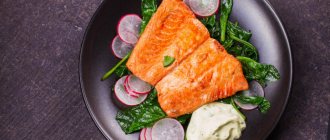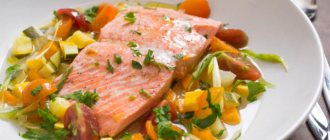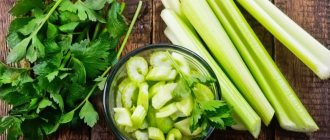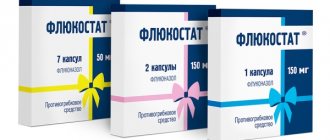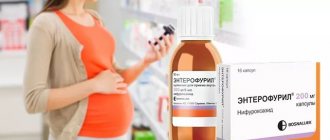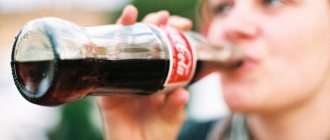Can I eat seafood when pregnant?
Do you really love seafood and especially mussels? This is of course good, but be careful as you are pregnant? Do you want to know about the safety of mussels during pregnancy? Then you will definitely find the answers to any of the above questions by reading our article.
What are mussels?
Mussels are a family of marine mollusks that live in freshwater bodies.
• Make sure you cook the mussels until the shells open. This is a signal that they are fully cooked. In case some sinks do not open, be sure to get rid of them.
• Eating raw or undercooked mussels may affect your pregnancy. A bad mussel in particular can infect your unborn baby with harmful bacteria. This can also lead to food poisoning and other health problems.
After your doctor has given you the go-ahead to enjoy mussels, and you have made sure that you have prepared them correctly, you can calmly sit down at the table and take advantage of all the vitamins and nutrients found in the shellfish.
• Mussel contains lean protein which will help in the development of muscles, cells and tissues of the unborn baby.
• The iron content in shellfish will help produce more blood in your body, which is a key requirement during pregnancy. It will also keep you in good shape for the entire nine months.
• In addition, shellfish contains good amounts of zinc, vitamin C, potassium, as well as calcium. These minerals are good for the development of your unborn baby as well as your health.
Be sure to consult your doctor before eating this seafood.
• 3 cups butter, softened• 2 cloves garlic, pressed• 1 teaspoon curry powder• 1⁄2 teaspoon chopped cumin• 1/8 teaspoon salt, or to taste• 2 pounds mussels, washed• 1 cup chopped red bell pepper• 1⁄4 cup chopped fresh parsley• 1 lime, thinly sliced• 1 lime, cut into 4 wedges
• Lubricating oil
• Heat an outdoor grill and lightly oil it.• Combine the oil, garlic, curry powder, cumin and salt in a bowl.• Take four sheets of aluminum foil and place them on a flat surface. Place equal portions of shells on each sheet of foil. Add some curry. Then sprinkle with parsley and red pepper.
• Remove the prepared dish from the foil and place everything in a bowl. Garnish with lime.
Well, now everything can be served. Bon appetit! Good luck to everyone, have a good baby and healthy food!
Fish, especially sea fish, contains a variety of minerals, in particular trace elements - iodine, fluorine, copper, zinc, etc.
There are slightly fewer extractive substances in fish than in meat, but they more strongly stimulate the secretion of the digestive glands. Since extractive substances turn into a decoction during cooking, fish broths (ears) are dangerous for women with diseases of the stomach and duodenum with high acidity, as well as the liver and pancreas.
At the same time, boiled fish itself can be consumed with virtually no restrictions. At the same time, fish broths, on the contrary, will be useful for pregnant women whose gastric juice acidity is low, since the extractive substances contained in fish, stimulating the secretion of digestive juices, increase appetite and improve food digestion.
Useful ways to prepare fish are boiling and baking in combination with various vegetables and herbs. Those who have tried fish baked in foil will always give preference to it. But we do not recommend frying fish. In addition to the fact that it is more difficult to digest, almost all extractive substances and harmful purines remain in it, increasing the load on the kidneys and liver, and various carcinogens accumulate.
Seafood such as mussels, scallops, shrimp, crabs, sea cucumbers, squid, seaweed (kelp) and some others are very useful to eat during pregnancy. With low fat content, they are a source of complete proteins, and in terms of microelements they are much superior to animal meat.
Sea kale is useful for pregnant women prone to obesity. Only those who suffer from acute diseases of the digestive system (peptic ulcers, gastritis, intestinal diseases, liver and kidney diseases) should not use it.
Canned seaweed is ready for use, but dried seaweed must first be cleaned of mechanical impurities, then soaked for 10-12 hours in cold water (3.5-4 liters of water per 0.5 kg of cabbage), and then rinsed thoroughly. Frozen cabbage is thawed in cold water, then also washed.
Sea fish and seafood are a source of high-quality protein, which the body needs in the same way as animal protein. Moreover, seafood contains a large amount of vitamins and minerals. They support the health of the expectant mother and also contribute to the harmonious development of the baby. Among them:
- Omega-3 and Omega-6 polyunsaturated fatty acids: have a beneficial effect on the mother’s heart muscle, reduce the risk of premature birth, and help the normal development of the child’s nervous system and vision.
- Vitamin D: helps the absorption of calcium and prevents its excessive loss from the mother’s bones, and also ensures the prevention of rickets in the unborn baby.
- B vitamins, in particular niacin (B6), folic acid (B9) and cobalamin (B12): stimulate the proper development of the neural tube and protect the mother from stress and mood swings.
- Calcium: is necessary for the formation of the baby’s musculoskeletal system, especially in late pregnancy, when the mother’s own reserves of this chemical element are already depleted.
- Iodine: very important for the thyroid gland and the baby’s brain.
- Phosphorus: activates cell growth and division, protects the thyroid gland, protects against immunodeficiencies.
- In small quantities - iron, fluorine, magnesium and zinc: also important for the development of internal organs and systems of the fetus and are consumed in large quantities.
The healthiest types of fish for expectant mothers:
- catfish;
- hake;
- tilapia;
- oily fish;
- pollock;
- flounder;
- pollock;
- sardine;
- cod;
- salmon;
- pink salmon;
- trout;
- halibut.
Do you really love seafood and especially mussels? This is of course good, but be careful as you are pregnant? Do you want to know about the safety of mussels during pregnancy?
Then you will definitely find answers to any of the above questions by reading our article.
During pregnancy, it is not recommended to eat raw shellfish. Mussels that have not been pre-cooked may contain dangerous bacteria. Therefore, it is recommended to boil, steam or stew seafood. The duration of heat treatment should not be less than 15 minutes.
There is a certain category of expectant mothers for whom shellfish are contraindicated. In particular, it is recommended to completely exclude them from the diet in the presence of the following pathologies:
- acute inflammatory process in the digestive organs (gastritis or stomach ulcer);
- liver diseases;
- kidney disease;
- pathologies of the genitourinary system.
All expectant mothers repeatedly listen to lectures on the importance of a healthy and balanced diet. And it’s hard to argue with this: the developing fetus needs a huge amount of microelements, vitamins, enzymes and other “building materials”. And their lack can subsequently affect your health throughout your life.
Mussels (and also mytilids) are the name given to marine bivalve mollusks that live throughout the world’s oceans and have been eaten by humans since time immemorial.
The most popular edible mussels for cooking are considered to be Black Sea mussels and, caught in the cold Seas of Japan and Okhotsk, as well as in the northwestern part of the Pacific Ocean, Gray's mussels (or giant mussels).
Every year, during the season of active fishing/collection of these delicious shellfish (at the very end of August), the small Belgian village of Erseke hosts “Mosseldag” (Mussell Day) - a holiday during which people eat valve mollusks in truly huge quantities in local restaurants and cafes. By the way, here is the only “Mussell Exchange” in the world, so there is, as they say, “no end” to buyers (retail and wholesale), as well as tourists.
Now mussels are not only caught in natural habitats, but also artificially grown on special platform farms. And the cost of the meat of such mussels in the refrigerated display cases of supermarkets is somewhat cheaper than the meat of their “wild” counterparts.
We suggest you read: Is it possible for pregnant women to have their teeth filled?
The nutritional value:
- Calorie content: 77 kcal
- Proteins: 11.5 g
- Fats: 2 g
- Carbohydrates: 3.3 g
Show full list »
- Water: 82 g
- Saturated fatty acids: 0.4 g
- Cholesterol: 40 mg
- Ash: 1.6 g
Macronutrients:
- Calcium: 50 mg
- Magnesium: 30 mg
- Sodium: 290 mg
- Potassium: 310 mg
- Phosphorus: 210 mg
- Sulfur: 115 mg
Vitamins:
- Vitamin PP: 1.6 mg
- Vitamin A: 0.06 mg
- Vitamin A (VE): 60 mcg
- Vitamin B1 (thiamine): 0.1 mg
- Vitamin B2 (riboflavin): 0.14 mg
- Vitamin C: 1 mg
- Vitamin E (TE): 0.9 mg
- Vitamin PP (Niacin equivalent): 3.7 mg
Mussels are one of the lowest-calorie foods that modern people eat. They are rich in healthy proteins (by the way, there is much more protein in mussels than in any fish or even meat) and contain almost no carbohydrates.
What are mussels?
Harm of squid and contraindications for consumption
Alas, squid, like other marine life, are capable of accumulating mercury compounds, arsenic and other harmful elements from sea water, with all the ensuing consequences. Therefore, they are not recommended to be eaten regularly.
Dried squid, which have become so popular recently, cause especially great harm to the human body. The presence in them of a large amount of salt and various kinds of food additives - dyes, flavor enhancers, preservatives and others - negates all their benefits and turns squid into an extremely unhealthy product!
If you really care about your health, then it’s better to refuse such a “delicacy”!
- people prone to allergies, as they are a powerful allergen;
- squids are too heavy food for a child’s stomach, they should not be given to small children under three years of age, and teenagers should eat them only occasionally and in small quantities;
- pregnant women and nursing mothers.
Doctors and nutritionists do not recommend squid dishes for people with individual intolerance.
If the shellfish was cultured in an artificial environment, it may contain growth hormones or antibiotics that can be harmful to humans.
The sea also currently contains many harmful substances, such as mercury. In order not to harm your health, you should buy seafood only from reliable producers.
Doctors advise not to eat canned shellfish, since such food contains preservatives and other harmful substances and does not retain virtually any beneficial properties.
You cannot exceed the norm - 600 grams per week.
Any healthy food can be harmful to the body. The beneficial properties and contraindications of foods always go side by side; consuming any dish without moderation can lead to unpleasant consequences.
Seafood is a strong allergen, so its consumption is contraindicated for allergy sufferers.
Can the product be used while breastfeeding? During pregnancy and breastfeeding, experts are not categorical, but still recommend refraining from eating these shellfish. Firstly, allergic reactions cannot be ruled out. Secondly, the meat of many sea creatures contains mercury compounds, and mercury poisoning leads to disruption of the kidneys, liver, stomach and nervous system, which is very dangerous for the health of the unborn or newborn baby.
Squid should not be consumed if you have pancreatitis. The reason for the ban is the content of substances that enhance the secretion of pancreatic secretions. With pancreatitis, the pancreas becomes inflamed, and if its work is stimulated, the inflammatory process is activated even more.
Can pregnant women eat mussels?
Is it possible for pregnant women to go to the cinema, club and attend various social events? Usually, from the very first visit of a pregnant woman to them, doctors explain that her behavior and lifestyle must change while carrying a child. Now you need to think not only about yourself, but also about your future child.
It's better to play it safe once again. And as for various public places, it is better to visit them only when absolutely necessary. Why such a restriction? It's simple, a large crowd of people is always a chance to catch airborne infections, of which there are many. Considering also that pregnant women’s immunity is somewhat weakened, the danger is many times greater.
If you get an acute respiratory infection or acute respiratory viral infection at the beginning of pregnancy, it can even provoke a miscarriage or fetal death, and later cause premature birth or placental abruption. But there is still a way out of the situation. You can lubricate the nasal cavity with oxolinic ointment before the event; this is a good prophylactic against various viruses, but again, the reliability of this method is by no means 100%. And when thinking about whether pregnant women can go to the cinema, this must be remembered.
By the way, about cinema. Don’t go to all kinds of “horror” movies, and you shouldn’t watch dramas either. Expectant mothers already have a delicate nervous system, they often cry and get upset over trifles, and it’s also a tearful movie and is far from depression. In general, look at your condition and mood. Some people enjoy watching these kinds of films. If you go to the cinema, do not forget about the prevention of various infections, which we described above.
Another unpleasant moment is that you will have to sit still for 2 hours, this is harmful to the veins, so learn several exercises to develop your feet, which you will need to perform periodically while watching the film. Another problem is stuffiness. If there are a lot of people in the room, there will be a lack of oxygen, and the baby may experience hypoxia (oxygen starvation).
The very first sign of this is too frequent or, on the contrary, rare movements of the child, even if his mother is in a calm emotional state and has adopted a comfortable body position. If you feel any discomfort while in the cinema, it is better not to wait until the end, and do not risk your baby’s health.
Is it possible for pregnant women to go to the club? This could potentially be more dangerous than going to the movies. If you are going to have fun, then choose a club where smoking is prohibited inside. Fortunately, there are more and more of them every day. Don't forget that secondhand smoke is very dangerous.
Do not wear high heels unless your trip to the club is limited to 1-2 hours and you will be forced to stand most of the time. Do not try exotic dishes: oysters, sushi, mussels, cleverly prepared shrimp - all this can lead to poisoning. Alcohol is also taboo for expectant mothers. No matter what they say or write about the supposed benefits of a small amount of wine, you must always remember that alcohol is poison in any quantity.
Many mothers also fear that loud noise will negatively affect their children. Fortunately, the baby is in the amniotic sac, which protects him from loud sounds as well.
So, it is not at all necessary to limit yourself too much in entertainment, but you need to know the limit in everything.
It is quite natural that they want not to radically change their diet and continue to eat what they like. Many people want to continue eating sushi, shrimp, and other seafood during pregnancy.
How safe are these products? The same shrimp, for example? Read the answers below.
In this article:Can pregnant women eat shrimp? Information about other seafoodPrecautions when consuming seafood during pregnancy
The answer to the question “can pregnant women eat shrimp” sounds positive. There are only a few small restrictions, but otherwise you can enjoy this seafood during pregnancy.
Shrimp are rich in protein and therefore beneficial for child development. In addition, this seafood is a good source of iron, which women require in abundance during pregnancy.
Shrimp also contains omega-3 fatty acids, which are beneficial for the development of the unborn baby's brain.
When a pregnant woman regularly consumes some amount of shrimp and other seafood, she is less likely to experience premature labor.
If we talk about quantity, then per week you need to eat no more than 340 grams of shrimp, peeled and properly cooked.
Eating too much shrimp can damage the development of a baby's neural tissue and lead to birth defects during the fetal development.
So pregnant women can eat shrimp with pleasure, but do it no more than twice a week. In addition, you need to make sure that seafood does not have high mercury content.
Information about mercury levels in certain regions can be obtained from the Internet, and when buying shrimp, pay attention to where exactly they were caught.
You should be aware that high mercury content can be found not only in shrimp, but also in marine fish. Moreover, the larger the sea fish, the higher the mercury content it may contain.
Therefore, pregnant women are advised to limit their consumption or avoid eating fish such as mullet, mackerel and other large marine fish during pregnancy.
During pregnancy, it is recommended to consume 250 to 340 grams of seafood per week. The following will be safe:
- saury,
- anchovies,
- som,
- salmon,
- trout,
- shrimps.
No matter what kind of seafood you choose to eat, take some precautions to protect yourself from harmful bacteria and viruses.
Sushi, sashimi, raw oysters and clams, as well as some types of scallops are all seafood that pregnant women should exclude from their diet.
This category includes frozen smoked fish and other smoked seafood. Only consume smoked fish that has been smoked using heat treatment and not with artificial smoking preservatives.
Know the situation
If you purchase seafood from a specific marine fishing area, inquire about the state of seawater pollution. If there is no such information, you should not consume more than 170 grams of sea fish per week.
Saltwater fish must be cooked to an internal temperature of 63°C. The fish meat should become opaque and easily separate into pieces. Shrimp, scallops, and crustaceans should be cooked until the meat turns a milky white color. Mussels, oysters and clams are cooked until their shells open.
The most popular questions about squid
How to clean squid?
If you bought a whole product, especially a frozen one, then before cooking it is necessary to peel it. To do this, you need to scald them with boiling water and immediately drain the liquid. Now the skin has curled and can be easily separated from the meat.
How long does it take to cook?
Squid has very tender meat that can be cooked in just 5 minutes, but only if we are talking about squid cut into rings and cleaned.
How to cook it so that the meat is not rubbery?
Many housewives complain that instead of tender and tasty meat, sometimes when cooked, squid turns into rubber. If this happens, then most likely the product is frozen or it was stored incorrectly in the store.
So, we told you about the dangers and benefits of squid, its calorie content and use in diets.
Now you know what vitamins this seafood contains and how to cook it deliciously. Remember that it will only become useful when it is first fresh, and if the mollusk is not artificially grown. News that helps!
What are the benefits of sea fish and seafood for pregnant women?
For our non-Mediterranean latitudes, seafood is still more of a delicacy and often ends up on holiday tables. But during the nine months of pregnancy, more than once you will want to please yourself with some delicacy. So let's talk about whether expectant mothers can eat caviar, shrimp and mussels?
Nutrition during pregnancy, recovery and lactation worries every mother. How to avoid gaining too much weight and still get all the necessary daily vitamins and nutrients? What should you prefer to improve your own health and to successfully transfer antibodies to your baby during feeding? Hundreds of questions and even more answers. But you also want to not forget about your favorite delicacies, which also includes seafood.
• Stimulate brain development;
• Affect the growth and formation of bone tissue;
• Supports the normal development of the baby’s nervous system;
• Do not put a strain on the digestive system of the mother and fetus.
According to the latest data from the Nutrition Institutes of different countries, seafood contains virtually no fat and is rich in proteins, and even surpasses animal meat in terms of microelements. For example, mussels are healthier than chicken eggs. And squid and shrimp not only contain iodine, but also hematopoietic substances. All this is subject to one condition - proper preparation and sufficient heat treatment.
The fact is that seafood delicacies retain their beneficial properties in any dishes and combinations. Therefore, you can safely experiment with them and find the best options for yourself. So, without the danger of oversaturation and fatigue of monotony, you can eat dishes with shrimp, mussels, canned tuna, salmon, catfish and other familiar and previously consumed varieties of fish and seafood twice a week.
However, take into account an important fact - the place of purchase of the product, its type.
During pregnancy, the body is more active and consumes more substances, which is why it is so susceptible to harmful components. Alas, without knowing the place of capture and fishing, it is difficult to state with certainty in which body of water and conditions the sea and river inhabitants were located. This is clarified in special laboratories of regulatory authorities.
As for finished products, carefully read their composition. Excessive addition of spices, vinegar and preservatives can cause heartburn and other discomfort. The same situation applies to dishes in public catering establishments. Of course, the waiters will take your situation into account, but you can’t control how and under what conditions it will be prepared. Therefore, home-cooked food subject to temperature control is still considered an ideal option.
shrimp, crayfish, lobsters, crabs. Two hours after consuming these products, the larynx swells, a runny nose appears, the eyes water, and rashes begin to appear on the body. Of course, these symptoms can be prevented with the help of medications, but in some cases only a strict diet and categorical refusal help.
If you are not a fan of fish and seafood, then you should not force yourself to eat them. It is enough to include it occasionally in your diet so as not to deplete the body of useful substances. Two main courses or 340 grams of fish or seafood per week will be enough. After all, it is not only important how and what you eat, but also in what mood.
• During pregnancy and children under 5 years old should not eat river fish. It can cause helminthiasis, and the parasite eggs themselves are not always destroyed even when exposed to high temperatures.
• According to observations and research conducted by scientists, the more a fish ages, the more actively it accumulates mercury. This dangerous element can be transmitted through food and cause serious poisoning. Therefore, it is worth excluding swordfish, shark meat, king mackerel, and lofolatilus from the diet.
• Crayfish, lobsters, oysters and shrimp may contain dangerous levels of mercury, which in excess can impair the development of a child's nervous system. Therefore, it is very important to buy these seafood in stores and at authorized markets, which are checked by special sanitary services to ensure that the product meets the quality standards and accepted GOST standards.
• You should not eat raw fish and seafood, especially oysters and shellfish. They can transmit the strongest viruses and bacteria.
• Frozen seafood is appropriate to add to dishes with many ingredients: pizza, casserole, stew, etc.
• The general rule for cooking fish is 10 minutes of cooking at a temperature of 230 degrees in the oven and constant simmering on the fire. Clams, oysters, shrimp and mussels should be cooked for at least 6 minutes until they turn a uniform milky white color.
• “If you regularly consume fish during pregnancy, the child will demonstrate a higher level of intellectual development as he grows up.”
• “It is especially important to eat fish and seafood in the second trimester of pregnancy”
• “Lack of nutrients from fish and other seafood products during fetal development will be reflected in delayed fine motor skills and speech development in children under 3 years of age”
Of course, there are exceptions to the rules in everything, but we can agree with one thing: a complete absence of fish or seafood in a pregnant woman’s diet will do more harm than good.
Many people refuse red caviar due to possible allergic reactions in a pregnant woman or baby. But this product is much less allergenic compared to cow's milk. Therefore, you can only focus on a specific organism and its reaction to this delicacy. Red caviar is a source of folic acid, which is so necessary for a growing baby and his developing nervous system.
Magnesium in its composition saves the expectant mother from seizures, lecithin normalizes cholesterol, and protein goes to the structure of the organs and systems of the fetus. But in addition to the listed substances, vitamins, microelements, it contains caviar and a lot of salt, which should not be abused while pregnant. If the expectant mother has bad urine tests or high blood pressure, then you should completely avoid such food.
Shrimp and mussels are an excellent source of protein, minerals and other valuable substances. Due to the almost complete absence of fat, they are much healthier than animal meat. They are easily digestible, if, of course, you know when to stop. Eating a kilogram of seafood in one sitting will be difficult for an ordinary person. Therefore, it is better for pregnant women to stick to the norm of about 150 g a couple of times a week.
It is important to know that both shrimp and mussels must be cooked first and not eaten raw. Uncooked shellfish contain dangerous bacteria that can cause food poisoning. Also, before you indulge in seafood for dinner, be serious about purchasing it. It would be advisable to find out the place where they were caught.
So, with the right choice of seafood, moderation in their consumption and attention to the reactions of the pregnant body, you can eat a little of them.
We suggest you read: Signs of labor during a second pregnancy pregnancy
Smoked, dried and dried fish are prohibited for pregnant women, since the processing of such products may not be sufficient to destroy all bacteria and helminths. Fish that has only been cold smoked is especially dangerous. In it, as in raw fish, listeria is often found - a rod-shaped bacterium that causes severe intoxication of the mother's body, delayed fetal development and miscarriage.
Hot smoked fish is considered more acceptable as it undergoes heat treatment. However, another problem awaits here. Increasingly, unscrupulous manufacturers are using special chemical compounds to give the product a pronounced “smoked” taste, smoky aroma and golden color. Such substances are definitely harmful, so it’s not worth the risk.
Heavily salted fish is also contraindicated for expectant mothers. Excess sodium chloride only creates additional stress on a woman’s kidneys, increases blood pressure and increases swelling of the extremities. It is preferable to buy unsalted or lightly salted fish products.
Salmon, trout and other types of red fish are very healthy for pregnant women. But due to the high fat content, such fish should be consumed no more than once a week. It is also important to remember the danger of allergic reactions. Red fish, like crustacean meat, contains large amounts of the amino acid histidine. It is this that can provoke a powerful release of histamine in the human body, up to anaphylactic shock.
Seafood is a source of pure protein and valuable microelements. But they have practically no fat, and they are very easily absorbed by the body. Seafood also has a positive effect on intestinal function, stimulates appetite, reduces cholesterol levels in the blood and improves the condition of skin and hair, which often suffer during pregnancy. Therefore, it is highly advisable for expectant mothers to include seafood in their diet.
Squid, shrimp, scallops and crabs are rich in potassium, iodine and iron. They also contain vitamins B, E and C, which are so necessary for the harmonious development of the baby.
Are squids good for the liver?
In case of liver diseases, a strict diet is followed, which makes it possible to partially reanimate the tissues of the most important organ, eliminate the load on the gastrointestinal tract, and reduce the intake of fats into the body. The menu includes vegetables, cereals, low-fat dairy products, lean fish, meat, and some seafood (squid).
Shellfish contain lipotropic substances that improve intestinal function, help normalize fat metabolism, and remove harmful cholesterol. Squids are baked, boiled and added to salads, and dishes stuffed with cereals are prepared.
Harmful seafood
There is little fat in mussels. At the same time, the product can be considered a “record holder” for the content of mineral salts, proteins and amino acids. In terms of nutritional value, mussels are superior to meats such as lamb, pork and veal. Shellfish have more protein than chicken.
There is virtually no cholesterol in mussels. Therefore, this product does not have a negative effect on the circulatory and cardiovascular systems.
Selenium and iodine, which are part of shellfish, are necessary for the smooth functioning of the thyroid gland. These substances help strengthen the immune system. Mussels also contain manganese. It is necessary for the normal development of the bones of the unborn child.
Mussels are a tasty and light product. After using them, there is no feeling of heaviness in the abdominal area. Many nutritionists are convinced that shellfish should be eaten twice a week. A woman should not be afraid to experiment: during heat treatment, the beneficial properties of mussels are practically not lost.
Mussels are added to soups, risotto, and vegetable stews. Shellfish are also used in preparing second courses.
Mention in history
The taste qualities of the mollusk were appreciated by the ancient Greeks and Romans, which is not surprising. They were always famous for their passion for delicious food and were considered true hedonists. In ancient times, for its agility and agility, squid was called “winged fish”. In Asia, from time immemorial, seafood has been the main product in the diet. And the former Soviet Union began producing them for food purposes in the sixties of the last century.
Eastern healers have long noticed the effect of potassium on the cardiovascular system through the product consumed. They deservedly considered the mollusk “balm for the heart.”
sushi - benefits and harm
What are the benefits of sea fish and seafood for pregnant women?
During pregnancy, priority is definitely given to sea fish. This is due to the fact that fresh water bodies are more susceptible to contamination with heavy metal salts and toxic chemicals. Also, freshwater fish are more often infected with pathogenic bacteria and parasites than sea fish. In addition, river fish does not contain valuable polyunsaturated fatty acids, like its sea counterparts, which feed on ocean algae.
Fish is a must-have product for a balanced diet for an expectant mother. But what to do if a woman is allergic, or the smell and taste of fish suddenly becomes repulsive during pregnancy? Fish and seafood can be replaced with special preparations containing Omega-3 and Omega-6 acids. At the same time, the choice of nutritional supplement, course duration and dosage are always within the competence of the doctor observing the pregnancy.
You can also diversify your diet with seaweed. It, like fish, contains: iodine, phosphorus, magnesium, calcium, sodium, folic acid, vitamins A, B, C, D, E and group B. Not a single vegetable or fruit can boast of such a composition. It is best to purchase fresh, dried or frozen kelp, since ready-made pickled cabbage contains too much vinegar and salt.
Thus, fish and seafood are an important part of the expectant mother’s diet. They ensure the normal development of the child, and give the woman herself strength and good mood for all 9 months of pregnancy.
Especially for beremennost.net – Elena Kichak
Composition and calorie content
The most important value of squid meat is its high concentration of protein: in 100 g of product there is up to 18 g of protein. This is equivalent to beef and fish. Proteins are the building material for all cells and tissues of the body; they are necessary for the transformation of amino acids, including essential ones. Without them, the normal functioning of any organ is impossible.
The calamari content of squid is as follows: approximately 100 kcal per 100 g. Carbohydrates account for no more than 3 g, fats - 1.4 g.
Squid, like many other seafood, is distinguished by the fact that it includes almost all the vitamins and minerals the body needs. These are B vitamins (B1, B2, B6), ascorbic acid, vitamin E, manganese, iodine, phosphorus, iron, zinc, copper, selenium and calcium.
Making mussel salad
The salad is usually prepared from frozen mussels. Seafood spoils quite quickly. Therefore, it is recommended to buy mussels immediately before preparing the salad. Clam shells must be tightly closed. If mussels have an unpleasant odor, you should not prepare a salad from them. Eating a low-quality product can cause food poisoning.
Mussel dishes are seasoned with soy sauce, mayonnaise or lemon juice. Clam salad with pickled mushrooms is very popular among the fair sex. It must be seasoned with lemon juice. Large olives are used to decorate the salad. But during pregnancy, it is recommended to avoid eating pickled vegetables. Such products can provoke the appearance of edema, which increases the likelihood of late toxicosis in the expectant mother.
A pregnant woman can prepare a salad that contains the following ingredients:
- 250 ml milk;
- a small amount of olive oil;
- 1 bay leaf;
- parsley;
- 150 g rice;
- 8 cherry tomatoes;
- 2 boiled eggs;
- salt (to taste).
Mussel salad should be prepared as follows:
- First you need to defrost and thoroughly wash the shellfish.
- Pour milk into a saucepan and bring it to a boil.
- Then add mussels, bay leaves, and a little salt to the pan.
- The shellfish need to be cooked for 15 minutes, then turn off the heat.
- The mussels are carefully transferred to a separate salad bowl using a slotted spoon.
- After this, you need to boil the rice until crumbly. It is mixed with mussels.
- 6 cherry tomatoes and eggs cut into small slices. These ingredients are added to the salad.
The dish is seasoned with olive oil. The finished salad is carefully laid out on plates. It is topped with parsley and remaining cherry tomatoes.
Squid recipes
You will need:
- Squid -1kg;
- Carrots-100g;
- Onion-50g;
- Fresh champignons -400g;
- Cream 10% -300g;
- Salt, spices for fish.
- Vegetable oil for frying.
Boil the prepared cleaned squid carcasses in salted water. To prepare the filling, cut fresh champignons into cubes and fry in butter (can be replaced with vegetable oil). Peel the carrots and grate them. Cut the onion into cubes. Fry carrots and onions. Combine fried mushrooms, onions, carrots, add salt, fish spices.
Required:
- Squid - 500g;
- Sweet and sour apples - 1 piece;
- Egg - 2 pcs;
- Sour cream -150g.
Boil the squid, cut into strips. Peel the apples and cut into strips. Boil the egg, chop finely. Combine all salad ingredients, add a little salt and sour cream, mix thoroughly. Salad ready.
Required:
- squid – 1 kg;
- fresh carrots – 200g;
- soy sauce – 2 teaspoons;
- garlic – 3 cloves;
- salt, coriander, pepper and sugar - 1 teaspoon each.
- seasoning for Korean carrots “Sensoi” – 1 pack.
Boiled squids are cut into thin strips. The carrots are grated into long strips. Season the carrots with Sensoy dressing and mix thoroughly. Combine squid with carrots, add soy sauce, garlic, coriander, a little sugar, and ground red pepper. The salad is mixed and placed in a salad bowl.
READ Peking cabbage benefits and harms.
Alternative to shellfish during pregnancy
Seafood contains large amounts of polyunsaturated fatty acids. With a long-term deficiency of these substances in the body of a pregnant woman, joint pathologies can occur. With a lack of polyunsaturated acids, the expectant mother may develop depression and capillary permeability worsens.
Polyunsaturated fatty acids help lower blood pressure and thin the blood. They have a beneficial effect on brain function. In addition, polyunsaturated fatty acids increase concentration and improve vision. In this case, mussels should be eaten in limited quantities. They place additional stress on the liver and pancreas.
If a woman has an allergic reaction to seafood, you can take medications that contain polyunsaturated fatty acids. They can be easily found at the pharmacy. Such drugs are available without a prescription. However, it is recommended to consult a doctor before using them. It is not recommended to exceed the optimal dosage of the drug.
Squid for pancreatitis
Marine protein is very easily absorbed by the human body. Despite this beneficial property, doctors prohibit the delicacy in acute pancreatitis for the following reasons:
- it contains substances that enhance the secretory ability of the pancreas: for a healthy person this is the benefit of squid meat, for a patient it is harmful;
- refers to allergens, it enhances the pathological process in the pancreas.
Important! During the period of remission, seafood consumption is allowed. However, they should only be eaten boiled. It is especially recommended to avoid the product in pickled or dried form: the disease, on the contrary, may intensify.
Useful properties for pancreatitis:
- increased iodine content;
- a large number of amino acids;
- high content of fatty acids;
- the presence of taurine, which maintains muscle tone.
The content of extractive substances that enhance the secretory ability of the pancreas, thereby supporting the activity of the inflammatory and destructive process;
Because many components of squid are recognized as allergens that can aggravate an already serious pathological process in the pancreas.
Therefore, you can remember about squid only after the resolution of acute pancreatitis.
In most cases, the pancreas reacts neutrally to squid meat in dishes. The reaction is similar to eating lean fish. It is worth expanding the diet with squid in the case when the patient does not experience exacerbations of pancreatitis for a long time.
But even healthy people, not to mention those with pancreatitis, should treat squid meat with caution, since due to their habitat, these marine inhabitants may contain toxins contained in the emissions of factories and enterprises, as well as mercury, which often accumulate in their body in significant quantities. Therefore, it is not recommended to purchase seafood at spontaneous markets, especially if you have pancreatitis.
Potassium, magnesium, phosphorus and fluorine
Phosphorus
Phosphorus is necessary for the formation of a child’s bones, teeth, nervous and muscular systems. It is also indispensable for the development of its brain, the formation of the organs of the digestive system and the absorption of nutrients. Phosphorus is part of DNA and is responsible for the transmission of hereditary characteristics.
Fluorine
Fluorine is involved in the formation of the skeleton and stimulates hematopoiesis.
Potassium and magnesium
Potassium is responsible for the vital activity of all living cells, supports the physiological functions of magnesium, which is the main nutrient for the heart, and also regulates metabolic processes. Often the cause of cramps in pregnant women is a deficiency of potassium and magnesium.
What about the benefits: is there any?
The delicacy contains a large amount of (, B, D,) and minerals (phosphorus, cobalt, zinc, manganese and others), and it is useful for mother and baby. The product is suitable for girls who want to preserve theirs after childbirth, because 12 oysters contain only 200 kcal.
Did you know?
The largest oyster was 38 cm long.
It also contains a large amount of protein, which is necessary in the diet. The delicacy is good for the heart, as it contains potassium and helps reduce inflammation and the risk of cardiovascular diseases. Seafood will also help strengthen the immune system, improve brain function and reduce the risk of cancer. In addition, the delicacy improves the functions of the kidneys, liver, nails, and also slows down the aging process.
How to select and store mussels
The health benefits and harms of mussels depend mainly on the quality of the product. When purchasing, you must follow several rules.
- When purchasing any shellfish, it is better to give preference to well-known, reliable manufacturers - this way the risk of stumbling upon a low-quality product is much less.
- Fresh shellfish should not emit an unpleasant odor. In addition, their doors must be tightly closed and airtight.
- Frozen shellfish should be inspected for pieces of ice in the bag. If ice is present, then most likely the mussels have already been defrosted once, and then you cannot buy them. The same goes for bags of shellfish frozen into one lump - you shouldn’t buy them.
- When buying a canned product, you need to look at the integrity of the packaging and expiration date.
As for storing seafood, only frozen mussels can be kept in the refrigerator for a long time - until the expiration date. They cannot be thawed or re-frozen. Fresh shellfish should be cooked and eaten immediately. It is advisable to consume open canned mussels on the same day. They spoil very quickly - this is not a product that can be put off for later.
Are pregnant women allowed to eat shrimp?
Pregnant women are allowed to eat shrimp if they have not previously caused any adverse reactions to the body. Even if the expectant mother loves to eat this delicacy and does it in any quantities, it is still worth knowing when to stop and not overeating.
You should eat shrimp only when the body really needs them and the woman has a strong desire to eat them. If a woman has never shown interest in seafood before, and while expecting a child she suddenly suddenly craves it, then she should not pounce on the delicacy and consume it in immeasurable quantities. It is advisable to first conduct a small test for absorption by eating 3 shrimp at a time and waiting about a day.
After this period, we can draw a conclusion about whether it is worth starting to eat shrimp or whether they are still not entirely accepted by the body. It is important for a woman to feel the slightest changes in her body in order to draw adequate conclusions on the consumption of this or that amount of seafood.
In fact, doctors do not prohibit seafood for expectant mothers, but they emphasize the purchase of quality products, proper heat treatment and moderate portions. After 22 weeks of intrauterine development, you can completely refuse to eat shrimp, if the body is saturated with them earlier. As a rule, at this stage all useful elements have already been received in abundance and the body of neither the mother nor the baby no longer needs additional enrichment. By this period, the fetus will have already formed its own immune system, so foods that can provoke an allergic reaction are extremely undesirable in the mother’s diet.
What harm is there for pregnant women?
The delicacy is mainly served raw in many restaurants. It is sprinkled with lemon juice or hot sauces and eaten. Such a delicacy can lead to food poisoning, since during pregnancy the woman has a weak immune system.
Important!
Undercooked oysters have an unpleasant taste and can cause gastrointestinal problems.
However, you can consume this seafood, but only in boiled form. Be careful, as a dish that is not fully cooked can cause neurological problems or... Another disadvantage of the delicacy is that after eating oysters, the mother may become sensitive to this product, but this only happens if the mother has an individual intolerance. In addition to pregnant women, the product is contraindicated for people with gout, gastrointestinal diseases, etc.
What fish should you not eat?
Increasing environmental pollution affects all living organisms. This environmental situation leads to the accumulation of heavy metals, dioxins and mercury in river and sea inhabitants. The largest amount of these compounds accumulates in long-lived predatory fish.
Species prohibited for pregnant women include:
- tuna;
- swordfish;
- shark;
- halibut;
- bluefish;
- King mackerel
Toxic substances tend to accumulate in fats, so in order to protect yourself and your unborn child, you should give preference to low-fat fish. It is also not recommended to consume cod liver in the early stages.
The maximum amount of vitamins, iodine and polyunsaturated fatty acids, which have a positive effect on the mental development of the child and help maintain the health of the mother, is found in sea fish. Therefore, if possible, it is better to purchase it.
But red and black caviar should be consumed with caution. Preservatives added to it to keep the product longer are carcinogens and cause cancer. It is also undesirable to eat mussels and other shellfish, since during their life processes they filter large volumes of water, absorbing harmful substances.
A pregnant woman's diet may include seafood such as lobster, shrimp, and crab. In terms of nutritional value and the amount of useful microelements, they are not inferior to sea fish. It is recommended to eat them boiled, since substances added to marinades and canned food can cause disturbances in the development of the fetus.
If you cannot afford to eat seafood regularly or have nowhere to buy it, river fish will be a worthy alternative. Of course, in terms of omega-3 and iodine content, it cannot be compared with seafood, but many valuable microelements (phosphorus, zinc, fluorine, etc.) are present in it. The main thing is to purchase fish from trusted stores and subject it to high-quality heat treatment.
Are mussels in oil healthy?
Most often, canned mussels can be found in oil, which adds additional brightness to the taste and increases nutritional value. But how beneficial are the properties of such a dish?
Shellfish in oil is the least healthy type of product. The fact is that the content of carbohydrates and fats increases sharply, and the protein becomes less, which reduces the value of mussels for the body. You can eat a product canned in oil, but it is preferable to choose fresh shellfish.
Cholesterol in squid
Most scientists agree that the cholesterol content in squid exceeds the permissible limit. It is most useful to consume the product in boiled form. If a person already suffers from high cholesterol, doctors do not recommend eating fried foods with fatty sauce - this can be harmful to health.
The content of this substance per 100 g of raw seafood is 85 mg, and in a fried dish it is 260 mg. Diabetics and heart patients may wonder whether it is possible to eat squid, because the cholesterol level in their meat is quite high.
However, not everything is so simple. Based on numerous studies, nutritional scientists have proven that the components of this shellfish, when consumed regularly, can normalize heart function, strengthen blood vessels, lower blood sugar levels and help remove harmful cholesterol from the body. This means that if you have diabetes, you can consume this product and not be afraid of an increase in sugar levels.
